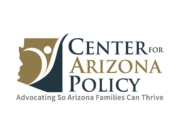Denver, CO – The nation’s most restrictive limit on donations to legislative candidates just landed in federal court. In a lawsuit filed late Friday, two Colorado candidates and a citizen who wishes to support candidates challenged Colorado’s limits on individual donors as unconstitutionally low.
“Colorado’s limits violate the First Amendment because they prevent candidates and their supporters from speaking effectively,” said Institute for Free Speech Senior Attorney and Deputy Vice President for Litigation Owen Yeates. Referring to another challenged aspect of the law that creates higher limits for some candidates than their opponents, Yeates added that “candidates can’t be punished for speaking by letting their opponents accept larger contributions.”
Individuals in Colorado are limited to giving $625 per election to a candidate for governor and $200 per election to a candidate for the Colorado Senate or House of Representatives. The limit for statewide candidates is periodically adjusted but lags behind inflation, while the $200 limit to legislative candidates has sat unchanged since 2002. These low limits prevent candidates from effectively communicating with voters in their districts.
The Supreme Court previously confronted this same problem in the 2006 case Randall v. Sorrell. In its decision, the Court struck down a $200 contribution limit in Vermont after determining that it prevented candidates from mounting effective campaigns. In fact, the Supreme Court has never upheld a contribution limit as low as Colorado’s, the lawsuit notes.
In addition to setting its limits too low, Colorado law punishes candidates who choose to fully exercise their right to promote their campaigns. Candidates who agree to limit their campaign spending are permitted to raise contributions twice the size of opponents who refuse. This scheme to punish candidates for promoting their campaigns to the fullest is unconstitutional under the Supreme Court’s 2008 decision inDavis v. FEC.
The plaintiffs in the case are 2022 gubernatorial candidate Greg Lopez, state senate candidate and current District 65 Representative Rod Pelton, and Colorado citizen and campaign donor Steve House. They are represented in the case by Yeates from the Institute for Free Speech, a nonpartisan First Amendment advocacy group that defends political speech rights, and Dan Burrows, Legal Director at Advance Colorado.
“Colorado’s campaign finance laws benefit incumbents and entrenched political players at the expense of new blood and new ideas,” said Steve House. “These unconstitutional contribution limits have denied all Coloradans the freedom to use our voices and our hard-earned money the way we choose.”
“Some of the most important constitutional freedoms that any Coloradan has are the rights to free speech and free association,” said Advance Colorado Legal Director Dan Burrows. “This includes the ability to give money to causes and people of their choosing. Colorado’s unconstitutional contribution limits are too restrictive and are simply denying candidates and donors their First Amendment rights.”
Lopez and Pelton have each identified supporters who wish to give more than Colorado currently allows. One of Lopez’s primary opponents has agreed to limit her campaign’s spending, allowing her to raise contributions twice as large as his campaign. Pelton has agreed to limit his spending in order to avoid being disadvantaged relative to his opponents. House, who has previously made campaign contributions at the legal maximum, wishes to support candidates to a greater extent in the future.
“There’s no good reason that my opponent’s allowed to raise twice as much as me for the exact same election. It’s obviously not a fair system,” said Greg Lopez.
“The First Amendment allows me to use my voice and energy to the fullest extent possible to convince voters that I’m their best choice. But Colorado has forced me into an impossible choice between being muzzled by spending limits or giving my opponents an impossible advantage,” said Rod Pelton.
A 2018 study by the Institute for Free Speech found that Colorado’s contribution limits for individual donors were the most restrictive in the nation after accounting for population and district size. Last year, Colorado’s limit on contributions from individuals to legislative candidates became the country’s lowest after Montana increased its limit from $180 to $400 per election. That’s twice the size of the limit in Colorado in a state with less than a quarter of its population. Eleven states do not impose any limit on the amount that individuals may contribute to gubernatorial and state legislative candidates.
Low contribution limits are especially harmful to candidates in major media markets like Denver and to new candidates and challengers who have not yet established name recognition with voters. These candidates need to pay for advertising, campaign materials, and travel throughout their district or the state. Incumbents, by contrast, enter campaigns with numerous advantages that make it easier to forego large contributions. Incumbents often plan their reelection campaigns far in advance, receive support from party leaders, have lists of past supporters to call on, and can earn publicity through their official actions.
Colorado voters deserve to hear from the candidates on their ballot. Colorado candidates deserve a fair opportunity to compete against well-known incumbents. The state’s low contribution limits undermine these basic democratic values and should be struck down under the First Amendment.
The case is Lopez v. Griswold in the United States District Court for the District of Colorado. To read the complaint, click here. For future updates on the case, check back here.
About the Institute for Free Speech
The Institute for Free Speech is a nonpartisan, nonprofit 501(c)(3) organization that promotes and defends the First Amendment rights to freely speak, assemble, publish, and petition the government. Originally known as the Center for Competitive Politics, it was founded in 2005 by Bradley A. Smith, a former Chairman of the Federal Election Commission. The Institute is the nation’s largest organization dedicated solely to protecting First Amendment political rights













